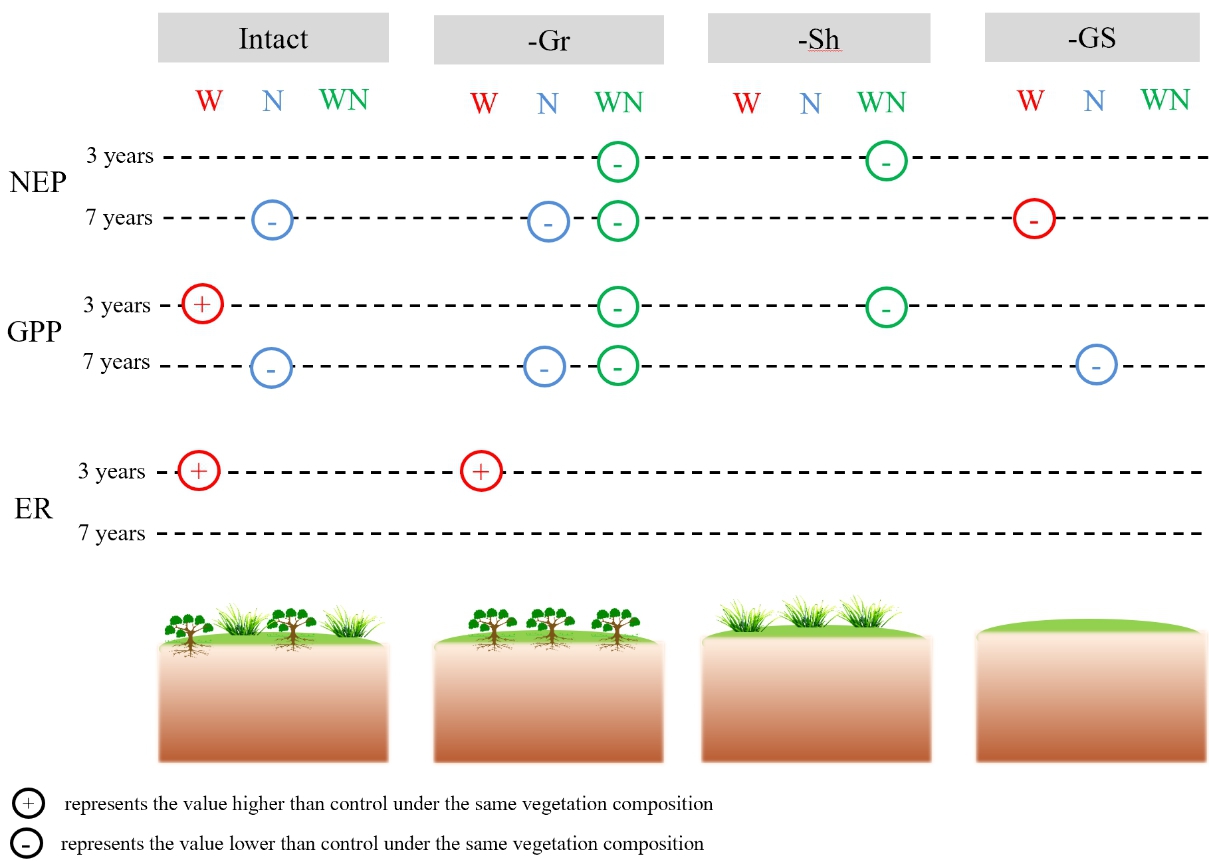Peatlands, which contain about one-third of the global soil carbon stock, are important carbon sinks. Their net carbon uptake is equivalent to ~1% of human fossil fuel emissions or 3-10% of the current net sink of natural terrestrial ecosystems. However, the carbon sink function may be altered under global change.
Global temperature is projected to rise by 2-5 ℃ within this century, and nitrogen (N) deposition is predicted to increase two-or three times. In addition, vegetation composition is affected by climate change, nutrient availability, and anthropogenic activities. For example, burning and grazing increases the growth of graminoids and decreases the growth of shrubs and bryophytes. Whether and how the carbon sink function of peatlands will respond to the interaction of these changes is unclear.
Researchers from the Wuhan Botanical Garden of the Chinese Academy of Sciences investigated the net carbon dioxide (CO2) uptake in a peatland under simulated warming, elevated N deposition, and changes in vegetation composition.
According to the researchers, N addition reduced net CO2 uptake, suggesting that elevated N deposition may weaken the carbon sink function of peatlands. This negative effect of N addition can be mitigated by warming without a change in vegetation composition.
Nevertheless, taking future climate warming and elevated N deposition into account, the carbon sink function of peatlands would be weakened but not altered under the graminoid-dominated conditions.
Furthermore, vegetation composition was found to be more important than warming and N deposition in driving the carbon sink function of peatlands.
Therefore, in addition to reducing fossil fuel burning and N fertilization, protecting vegetation composition is also essential to conserve peatlands and maintain their carbon sink function.
The study entitled "Vegetation composition regulates the interaction of warming and nitrogen deposition on net carbon dioxide uptake in a boreal peatland" was published in the Functional Ecology.







